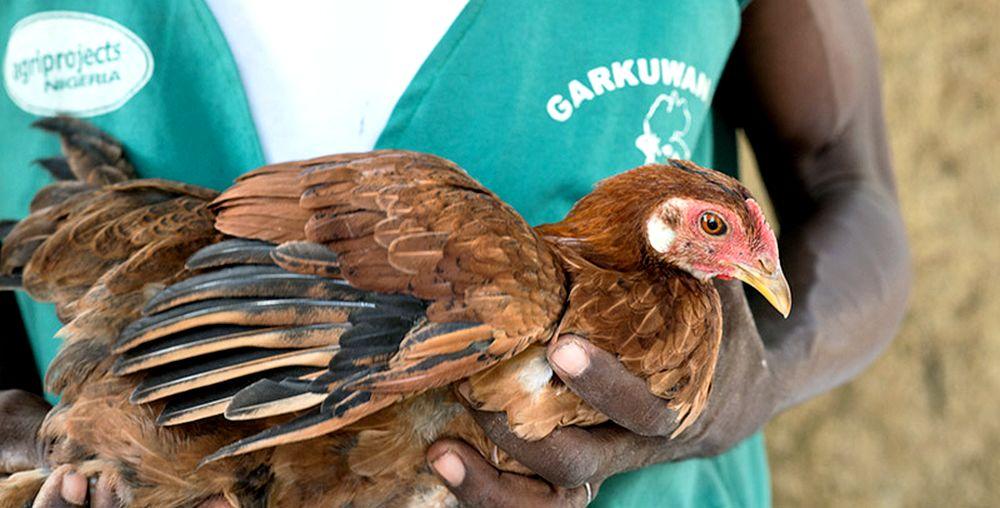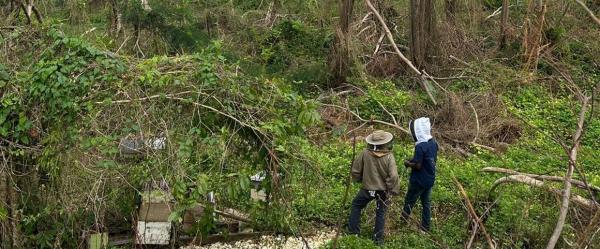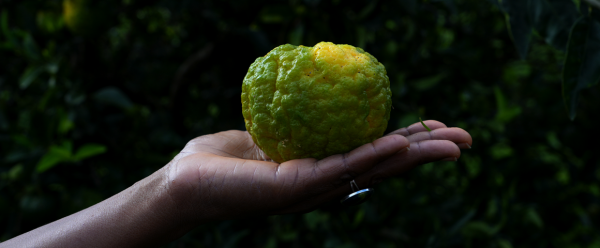Science at work 14 January 2026
- Home
- CIRAD news
- News
- LIDISKI: Improving the livelihoods of smallholders in Nigeria
LIDISKI: Improving the livelihoods of smallholder livestock farmers in Nigeria

Many Nigerian households are heavily reliant on livestock, which are a source of both animal protein and income. Supporting the smallholder sector thus serves to boost food security, improve quality of life, notably for the country's smallholders, and empower women, who are major players in the poultry and small ruminant value chains in particular.
In this context, livestock diseases are a major issue. They are the biggest economic threat to the livelihoods of poor rural farmers and livestock owners. Mitigating those diseases requires surveillance and control systems that are not currently fully operational in Nigeria.
To address this issue, the EU, through the DeSIRA (Development-Smart Innovation through Research in Agriculture) initiative launched by the European Commission Directorate-General for International Cooperation and Development (DG DEVCO), recently granted funding for a project called LIDISKI (LIvestock DIsease Surveillance Knowledge Integration). The project, led by CIRAD, aims to use knowledge gathered from players in the animal health sector to build tools and expertise for use in establishing sustainable surveillance and control strategies against livestock diseases. Those players will include community animal health workers, veterinary services, the National Veterinary Research Institute, field veterinarians, herders, poultry farmers and private livestock businesses.
The project focuses on two of the main animal diseases affecting farms in Nigeria: peste des petits ruminants (PPR) and Newcastle disease (ND). PPR is estimated to cause between $1.4 and $2.1 billion worth of damage in Nigeria every year, while Newcastle disease is highly virulent and can wipe out whole flocks of chickens.
Project operations will centre on four main activities :
Capacity building, to improve the ability of animal health players in Nigeria to monitor and control PPR and ND. This means training people to recognize disease symptoms and collect and store the necessary samples and data. It will also involve increasing vaccine production and improving delivery.
Involving field players in vaccination and disease reporting, through communication and awareness campaigns.
Understanding the situation. Socioeconomic and epidemiological surveys will be conducted, focusing on PPR and ND distribution and impact, perception of disease and vaccination cost-benefits, gender-specific issues, and the impact of climatic events on livelihoods.
Developing a toolkit for use in scaling up surveillance and control efforts across Nigeria.
The LIDISKI project was launched at a kick-off meeting on 5 March in Abuja, Nigeria.
Project partners
French Agricultural Research Centre for International Development (CIRAD, France, project coordinator)
National Veterinary Research Institute (NVRI, Nigeria)
Istituto Zooprofilattico Sperimentale delle Venezie (IZSVe, Italy)
Ikore International Development (Nigeria)
DeSIRA, a European programme to support the agricultural transition to resilient, sustainable production methods
The DeSIRA initiative (Development Smart Innovation through Research in Agriculture) is an EU programme led by the European Commission Directorate General International Partnerships (DG INTPAR). It is devoted to agricultural research in the global South in relation to climate change.
In the light of the acceleration in climate change, the DeSIRA initiative intends to pinpoint innovations that will transform the agricultural sector and pave the way for resilient, sustainable agrifood systems. To this end, DeSIRA is funding numerous research projects in collaboration with partner countries in the global South, primarily targeting crop and livestock farmers, along with producer organizations, NGOs, processors, consumers, etc.
Following the initial call for proposals, CIRAD was associated with ten projects, and it is now coordinating thirteen, alongside around ten European scientific partners, several CGIAR centres and some twenty partners in the global South



























